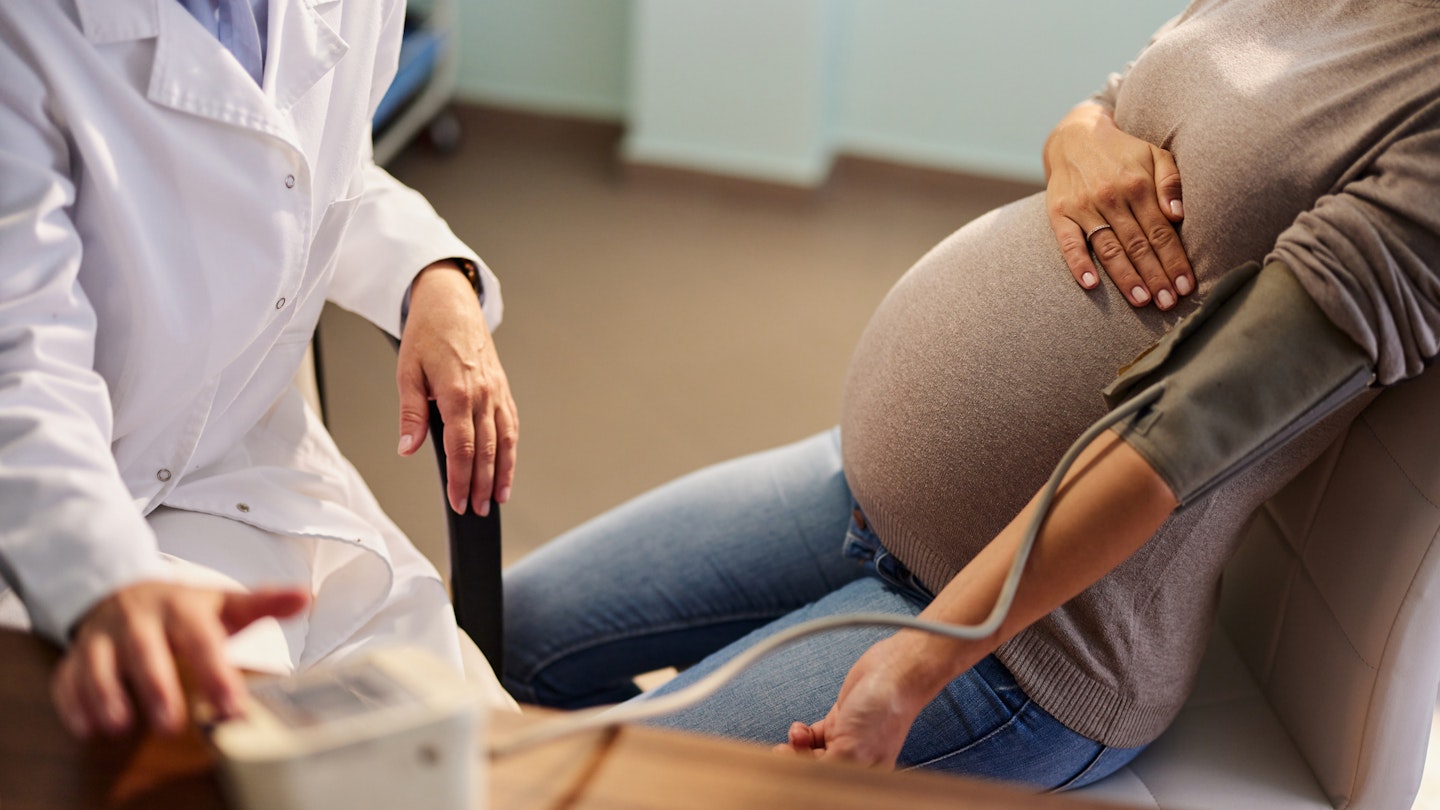We know we are probably preaching to the choir, but during pregnancy, your body undergoes many changes, and while some of them can be amazing, like your cute baby bump, others can be a bit more troublesome. One of those sneaky surprises is Supine Hypotensive Syndrome, a fancy term for when lying on your back suddenly feels like a bad idea. While it's a temporary glitch in the grand pregnancy process, understanding and preventing it is key to keeping you and your growing baby safe and healthy.
To bring you the best advice, we spoke to Women's Health Expert Dr Sarah Jenkins to better understand supine hypotensive syndrome, including its causes, signs, and treatment. So, you can learn why lying on your back might not be as relaxing as it seems.
What is supine hypotensive syndrome?
Supine hypotension, also known as hypotensive syndrome, happens when the growing uterus presses on the vena cava—the large vein that carries blood from your lower body back to your heart. This pressure can cause a drop in blood pressure, which reduces blood flow to both the uterus and the baby. It’s most commonly seen in the later stages of pregnancy.
What are the symptoms of supine hypotensive syndrome in pregnancy?
Symptoms will usually occur within a few minutes of lying down in a supine position (on your back) and range from:
• Dizziness
• Lightheadedness
• Fainting or near fainting
• Looking pale
• Fast heart rate or palpitations
• Shortness of breath
• Low blood pressure
• Nausea
• Sweating
What is the best treatment for supine hypotensive syndrome?
This is a transient condition (something that doesn't last long) that occurs when the pregnant woman changes positions. Lying on your left side when resting or sleeping is the best way to treat and prevent this problem, as the vena cava is central and slightly to the right side internally.
Is supine hypotension syndrome normal?
It can be considered a normal ‘problem associated with pregnancy’, so women just need to be mindful of how to prevent it from happening and not be alarmed if it does occur. If you are pregnant and experience any of these symptoms when lying flat on your back, remember to shift to your left side. Wait 10 minutes, and if all symptoms have gone, there is no need to worry. If symptoms persist, then seek medical advice.
If you're over 20 weeks, overweight, you're carrying more than one baby or have an existing heart condition, then you may be at higher risk of experiencing supine hypotension.
Can supine hypotensive syndrome in pregnancy be prevented?
Yes, the good news is that hypotensive syndrome can be prevented by not lying on your back. From your second trimester onwards, it is important to lie on your left side when resting. If this doesn't feel natural or comfortable, investing in a good maternity pillow to help cushion yourself and make this position more comfortable is a brilliant idea.
There are no specific exercises that will help reduce your risk of supine hypotensive syndrome, but keeping healthy is always beneficial for your blood pressure. However, after 20 weeks of pregnancy, you should avoid exercises that involve lying on your back, including some yoga and Pilates poses. Any light exercise during pregnancy is fine, and if you were active prior to pregnancy, it is generally deemed safe to continue with this. However, you should always check with your healthcare provider for your specific health situation and individual pregnancy.
Looking into foods that can help to keep your blood pressure more consistent may also help if you're experiencing blood pressure fluctuations during pregnancy. Again, be sure to consult your midwife or GP before making any drastic changes to your diet while pregnant.
Hannah Carroll is a Senior Digital Writer at Mother&Baby. In her capacity, she curates top-notch listicles, crafts insightful how-to guides, and delivers expert product reviews. As a mother of three, Hannah draws upon her comprehensive understanding of all facets of family life to bring true insight into all the products that make running a home easier.
Meet the expert:
Dr. Sarah Jenkins
With over 10 years of experience as an NHS doctor, Dr. Sarah Jenkins offers expert guidance and treatment for women’s health, including postnatal support and pelvic health. Drawing on both professional and personal experience, Dr. Jenkins is one of the UK's leading experts on women's intimate radiofrequency treatments and is a global master trainer for Inmode. She is one of a handful of experts in the UK offering solutions for this rapidly growing niche area of medical care for women.
